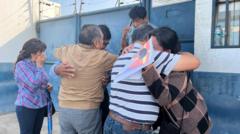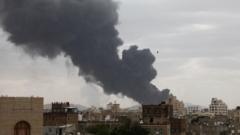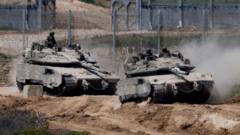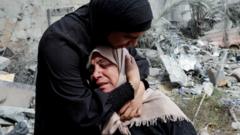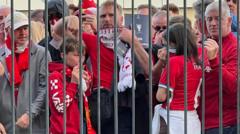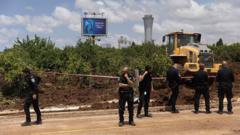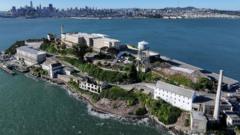Following disturbances involving Maccabi Tel Aviv fans, Paris police are preparing for a challenging environment as geopolitical tensions escalate.
**France Bolsters Security for High-Stakes Israel Match Amid Rising Tensions**
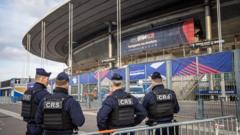
**France Bolsters Security for High-Stakes Israel Match Amid Rising Tensions**
In light of recent violence in Amsterdam, France is ramping up security measures for Thursday's football international against Israel.
France is preparing for a high-alert scenario for the upcoming UEFA Nations League match between France and Israel, in response to violent incidents involving Israeli fans in Amsterdam. Paris police chief Laurent Nuñez has announced the deployment of approximately 4,000 police officers, with 2,500 stationed at the Stade de France, alongside an additional 1,600 private security personnel to monitor the situation closely.
This decisive action comes after a violent episode last Thursday, where Maccabi Tel Aviv supporters were attacked in Amsterdam amid heightened geopolitical climates. Paris officials have voiced their commitment to maintaining public order. “It is a high-risk match due to an extremely tense geopolitical context,” Nuñez emphasized, indicating strict measures will be implemented to safeguard attendees.
Due to security concerns, only around 100 Israeli fans are expected to travel to the match, following guidance from the Israeli government, resulting in a stadium that can accommodate 80,000 having only a quarter of its capacity filled. The Israeli squad is to be escorted by an elite anti-terrorism unit. Political responses have surged following the Amsterdam clamor, with many European politicians interpreting the situation as indicative of a troubling resurgence of antisemitism.
While Maccabi fans were involved in vandalism and violence within Amsterdam, they were also victims of coordinated attacks from local rioters. The Netherlands’ response highlighted this dual perpetration, emphasizing the need for regulation over such sports events amid fractious international relations.
In a show of solidarity with European Jews, French President Emmanuel Macron plans to attend the match alongside other prominent political leaders. Security protocols will be strict, with pre-match identity checks and closures of nearby bars and restaurants to prevent potential disturbances.
Protests opposing Israel's actions have also surged, with several thousand demonstrators in Paris calling for the match to be canceled. The far-left France Unbowed party has specifically urged Macron to refrain from attending, arguing against legitimizing a nation they claim is perpetrating genocide. This position is countered by French Interior Minister Bruno Retailleau, who asserts that such distractions will not dictate France’s resolve to host the match.
France and Israel's relationship has been tested recently over the ongoing conflicts in the Middle East, with Macron criticizing Israeli strategies in Gaza, to which Israeli officials responded with backlash concerning past statements made by Macron about the creation of Israel.
The upcoming match is set against a backdrop of rising tensions, challenging France's historical role as a mediator in the Israeli-Palestinian conflict and testing the diplomatic skill of its leaders in the face of rapidly evolving social sentiments and geopolitical shifts.




